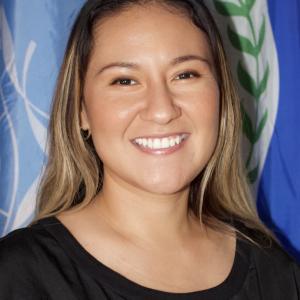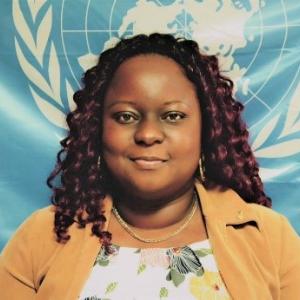UN Agencies Coordinate Mobile Centers for Rural Communities in Belize, host Migrant and Asylum-Seeking Families
19 February 2021
The United Nations Population Fund (UNFPA), UN Refugee Agency (UNHCR), the United Nation’s Children Fund (UNICEF), and International Organization for Migration (IOM) will be launching a series of Mobile Centers for asylum seekers and migrant communities in southern and western Belize.
This outreach is a part of an inter-agency plan which seeks to coordinate the development and implementation of strategies to achieve the Sustainable Development Goal 10 to reduce inequalities within and among countries. It requires countries to “facilitate orderly, safe, regular and responsible migration and mobility of peoples.” Belize is currently home to an estimated 51,000 migrant persons and in 2010, 14.8% of the total population of Belize accounted for the foreign-born population. In addition, Belize hosts 2,394 registered and an estimated 3,400 more unregistered asylum seekers and refugees that have come to the country seeking safe haven and protection, mostly from nearby El Salvador, Honduras, Guatemala, and Nicaragua. The mobile clinics will allow for agencies to coordinate humanitarian assistance and support to respond to the emerging issues of migrants, refugees and residents of their host communities.
“Migration is an important force in development and a high-priority issue where almost half of all migrants are women, and most are of reproductive age”, says Tisa Grant, Liaison Officer for UNFPA Belize. “They all have specific needs and human rights concerns, including increased susceptibility to gender based violence which includes physical, psychological, socio-economic and sexual violence.”
Grant further explains, “The legal support to be received by the migrant community is part of a broader initiative by the EU and UN to end violence against women and girls under the Spotlight Initiative, to help ensure that essential services reach and empower those who are most vulnerable and furthest behind such as migrant women.”
“When the most vulnerable populations, including refugees, asylum seekers and their host communities, do not have access to basic services like health and protection, everyone suffers” says Yolanda Zapata, UNHCR’s Head of Office in Belize. “Facilitating access to legal services, birth registration, psychosocial services, and to information on the asylum procedures are key to developing comprehensive responses to address the needs of all populations living in the rural areas of Belize. This joint effort supports the fight against statelessness, the access to basic human rights and helps pave a more certain road towards greater inclusion.”
Michel Guinand, Social Policy Specialist for UNICEF Belize, specifies that children affected by migration are particularly vulnerable and should benefit from special protection measures. Guinand explains that the mobile centers will assist UNICEF in extending its national birth registration advocacy to migrant families in these communities. It is also an opportunity to respond to the often-invisible children of migrant families and provide integrated services to address their inherent vulnerabilities.
Guinand emphasizes that, “additional investments in health, education and social protection is needed to address the risks, exclusion and discrimination faced by children and adolescents from migrant families. These mobile centers take the requisite services to the spaces where they are most needed to improve the lives of children in these vulnerable populations.”
There remains a need for persons in vulnerable position such as migrants in a regular or irregular status, to access much needed services offered by the state or other local agencies. IOM Belize will offer support for the sustainable social economic integration of migrants and returnees in Belize by sharing information to migrants in the community on the application process for nationality, permanent residence, visas, and work permit.
The mobile centers will expand coverage through the provision of services to community members who cannot access established centralized service locations due to limited mobility, distance, insecurity or other obstacles. It will be conducted in three phases in communities where migrant and asylum-seeking families reside. The events begin at 9:00 am and the schedule is as follows:
- 20th & 21st February – Bella Vista
- 27th February – Valley of Peace
- 13th March – Benque Viejo
Beneficiaries will be able to access a comprehensive menu of critical health, legal and social services. These include consultations to facilitate onsite registration of births and other procedural queries. Families who require legal support will also be able to access free one-on-one legal advice and assistance on family law, inheritance, property matters, and immigration and asylum system procedures. They will also be able to access sexual and reproductive health services, inclusive of cervical cancer screening, HIV testing and manual breast exams.
This initiative is part of a national joint strategy between the Government of Belize and the UN Inter-Agency Response team to improve migration management, mitigate challenges and preserve the dignity and to guarantee the same value to all, as human rights are inalienable and universal. There will be strict adherence to COVID-19 protocols with an appointment system in place to manage flow and movement among persons.



